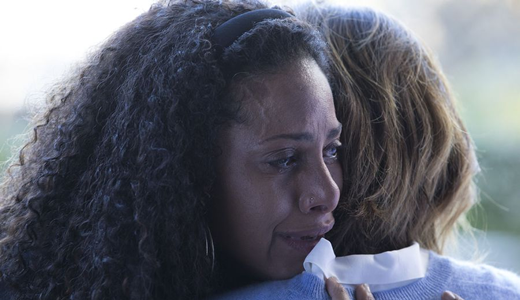I was watching Monday Night Football when I saw it last week: an ad for some new family-ish show that looked exactly like another hit show.
I didn’t actually catch the name of the drama, though, because I turned to my wife and said, “Oh look: It’s ABC’s version of This Is Us.”
The latter NBC show, of course, has floated toward the top of the ratings for two seasons. This Is Us has become something we rarely see anymore: event television. The kind that folks talk about at the proverbial “water cooler” at work the next day.
Shows like these used to be a dime a dozen. I mean, NBC had a whole evening of ’em. (Thursday night’s “Must See TV” back in the 1980s and ‘90s, for those who remember back that far.) But event TV shows just don’t happen as often these days. This Is Us is the kind of series that prompts gushing fans to exclaim: “Did you see this week’s episode!? You have to see it! You won’t believe it! I couldn’t believe it! It made me cry so hard!”
And that last bit is, it seems, what producers are now honing in on, striving with all their narrative and marketing might to imitate: creating a show that makes you weep consistently. A show that connects so deeply, so emotionally that you can’t help but tell your friends and associates the next day how many tissues you dabbed your eyes with.
The ABC version, I later learned, is called A Million Little Things. It just sounds like a weeper, right? It’s a good title. And ABC is hoping that those who’ve tuned religiously for This Is Us will give its copycat tear-duct cleanser a shot, too.
ABC’s not the only network gunning for your heartstrings, either. The Daily Beast‘s Kevin Fallon called out a couple of other new dramas that are apparently striving for a similar emotional response: NBC’s hoping for another lightning strike with Manifest, a show about a plane that flies through a storm only for its passengers to discover when they land that it’s five years later. (Look for our review later this week.) Fallon writes,
At first blush you might think sounds a lot more like Lost than a cross-generational family melodrama starring Mandy Moore. But we’d venture that, for all its genuinely intriguing sci-fi elements, it owes much more to the network’s tear-jerking hit than any polar bears, hatches, or smoke monsters. Most noticeably, it roots its emotional gut punch in a very This Is Us-ian twist: Surprise, everyone is connected!
Fallon also notes that yet another NBC show, the medical drama New Amsterdam, also aims an emotional wallop right at viewers.
So what are we to make of all this emotional, um, strategizing (pandering?) to draw us in as viewers?
First, it’s no surprise, of course. In Hollywood, whenever anyone has a hit—whether it’s a TV series or a movie—you can reliably expect more of the same in short order. And so here come the This Is Us copycats.
Second, good drama works not only on the head, but on the heart. It draws us in. It invites us to connect and identify. And it keeps us on the edge of our seats, wondering what’s next.
That can be a beautiful thing. Sometimes shows like these help us get in touch with something inside our own hearts and remind us of something in real life that needs attention, something that we need to deal with. Watching a son connect with his elderly father, for instance, might remind us to give our own dad a call. To the extent that that happens, these series can be healthy and cathartic.
But that truism comes with an important caveat: While being moved to tears by a show or movie, we must also be careful not to relinquish our discernment as elephant tears roll down our cheeks. It’s critical to pay attention to the worldview and ideas that get incorporated into those moving moments. Because when we’re most open and vulnerable as viewers, shows like these can subtly undermine the values or beliefs that we hold as Christians.
God has created us with rich, deep emotions. Sometimes the fictional stories we engage with can stir up our hearts in unexpected, powerful and personal ways. But whether that emotional response is a healthy one or a harmful one depends a lot on whether we keep a cool head even as our overheated hearts are invited to gallop away by shows like these.






Recent Comments